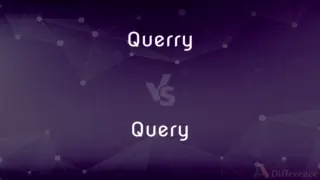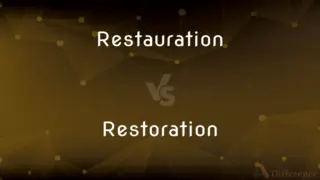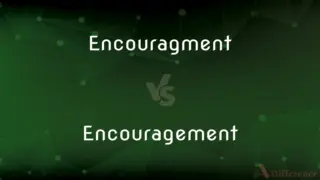Traffick vs. Traffic — Which is Correct Spelling?
Edited by Tayyaba Rehman — By Sumaia Saeed — Updated on April 18, 2024
Traffick is the incorrect spelling of traffic. Traffic refers to vehicles moving on a road or public thoroughfare.
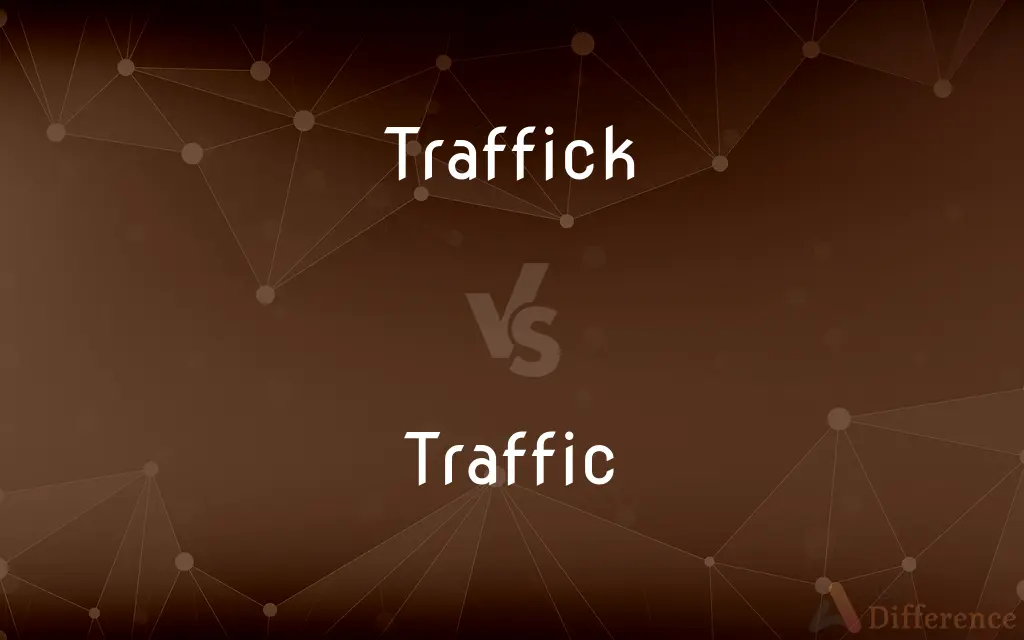
Table of Contents
Which is correct: Traffick or Traffic
How to spell Traffic?

Traffick
Incorrect Spelling

Traffic
Correct Spelling
ADVERTISEMENT
Key Differences
Consider the word "tragic," which is similar in ending and only uses one 'c'.
Use the mnemonic: "In traffic, single 'c' gets you there quicker."
Think of the word "specific," another word ending in 'ic' that is spelled with only one 'c'.
Remember that "traffic" has a simpler spelling with only one 'c' at the end.
Note that "traffic" aligns with other words like "horrific" and "pacific," all ending with 'ic' and not 'ick.'
ADVERTISEMENT
How Do You Spell Traffic Correctly?
Incorrect: There was a major traffick jam on the highway today.
Correct: There was a major traffic jam on the highway today.
Incorrect: Accidents can increase traffick congestion significantly.
Correct: Accidents can increase traffic congestion significantly.
Incorrect: He was stuck in traffick for hours.
Correct: He was stuck in traffic for hours.
Incorrect: The city plans to reduce traffick problems with new roads.
Correct: The city plans to reduce traffic problems with new roads.
Incorrect: Traffick lights are crucial for pedestrian safety.
Correct: Traffic lights are crucial for pedestrian safety.
Traffic Definitions
Movement of vehicles and pedestrians on roads.
Heavy traffic is common in urban areas during rush hours.
The vehicles moving on a road.
The bridge was closed to all traffic after the accident.
Transmission of signals or messages over a communications network.
The network handles a huge amount of internet traffic daily.
Illegal trade or business, especially of drugs or goods.
The police are cracking down on drug traffic in the neighborhood.
Traffic on roads consists of road users including pedestrians, ridden or herded animals, vehicles, streetcars, buses and other conveyances, either singly or together, while using the public way for purposes of travel. Traffic laws are the laws which govern traffic and regulate vehicles, while rules of the road are both the laws and the informal rules that may have developed over time to facilitate the orderly and timely flow of traffic.
The passage of people or vehicles along routes of transportation.
Vehicles or pedestrians in transit
Heavy traffic on the turnpike.
Stopped oncoming traffic to let the children cross.
The commercial exchange of goods; trade.
Illegal or improper commercial activity
Drug traffic on city streets.
The business of moving passengers and cargo through a transportation system.
The amount of cargo or number of passengers conveyed.
The conveyance of messages or data through a system of communication
Routers that manage internet traffic.
Messages or data conveyed through such a system
A tremendous amount of telephone traffic on Mother's Day.
Couldn't download the file due to heavy internet traffic.
The number of users or visitors, as at a website
Attempted to increase traffic with a redesigned homepage.
Social or verbal exchange; communication
Refused further traffic with the estranged friend.
To carry on trade or other dealings
Trafficked in liquidation merchandise.
Traffic with gangsters.
To provide to others, especially in large quantities, in exchange for money
Was accused of trafficking guns to local gangs.
Moving pedestrians or vehicles, or the flux or passage thereof.
The traffic is slow during rush hour.
Commercial transportation or exchange of goods, or the movement of passengers or people.
Illegal trade or exchange of goods, often drugs.
Exchange or flux of information, messages or data, as in a computer or telephone network.
(radio) In CB radio, formal written messages relayed on behalf of others.
(advertising) The amount of attention paid to a particular printed page etc. in a publication.
Commodities of the market.
(intransitive) To pass goods and commodities from one person to another for an equivalent in goods or money; to buy or sell goods.
(intransitive) To trade meanly or mercenarily; to bargain.
(transitive) To exchange in traffic; to effect by a bargain or for a consideration.
Congested
To pass goods and commodities from one person to another for an equivalent in goods or money; to buy or sell goods; to barter; to trade.
To trade meanly or mercenarily; to bargain.
To exchange in traffic; to effect by a bargain or for a consideration.
Commerce, either by barter or by buying and selling; interchange of goods and commodities; trade.
A merchant of great traffic through the world.
The traffic in honors, places, and pardons.
The business done upon a railway, steamboat line, etc., with reference to the number of passengers or the amount of freight carried.
The aggregation of things (pedestrians or vehicles) coming and going in a particular locality during a specified period of time
Buying and selling; especially illicit trade
The amount of activity over a communication system during a given period of time;
Heavy traffic overloaded the trunk lines
Traffic on the internet is lightest during the night
Social or verbal interchange (usually followed by `with')
Deal illegally;
Traffic drugs
Trade or deal a commodity;
They trafficked with us for gold
Dealings or communications between people, groups, or organizations.
There's a lot of diplomatic traffic between the embassies.
Traffic Meaning in a Sentence
On weekends, the beach road experiences a lot more traffic.
The traffic was so heavy this morning that I was late to school.
The traffic lights at the intersection help manage the flow of cars.
Cycling is tough in the city due to the constant traffic.
During holidays, traffic on highways can be a real challenge.
They decided to take the train to avoid city traffic.
She listens to traffic updates every morning to plan her commute.
Traffic congestion can increase pollution levels in the city.
New traffic rules have been implemented to ensure safety.
Emergency vehicles need a clear path to navigate through traffic.
To avoid the morning traffic, he leaves his house by 6 AM.
The traffic cop directed cars smoothly despite the rush.
Traffic noise often disrupts the quiet of our neighborhood.
The traffic on the bridge slows down every evening.
Accidents should be reported to help manage traffic better.
Her job involves analyzing traffic data from sensors on roads.
Traffic schools teach drivers about road safety and regulations.
Holiday traffic is worst when everyone is heading out of town.
The annual parade draws a lot of traffic to our town.
The traffic report on the radio warned of a major delay.
Traffic management during festivals requires careful planning.
He studies traffic patterns to improve road safety.
Local businesses benefit from the foot traffic in the area.
A new app helps drivers avoid traffic jams using real-time data.
Traffic engineers work to design roads that flow more efficiently.
Traffic Idioms & Phrases
Traffic light
A visual signaling device at intersections to control vehicle movement.
Wait for the traffic light to turn green before you cross the street.
Foot traffic
The number of people moving or walking in a particular area.
The new coffee shop has increased foot traffic in that part of town.
Traffic jam
A large number of vehicles close together and unable to move or moving very slowly.
There was a massive traffic jam after the concert ended.
Air traffic
All the aircrafts moving in and out of an airport.
Air traffic increases significantly during the holiday season.
Traffic congestion
Heavy traffic causing slower speeds, longer trip times, and increased vehicular queuing.
The city is implementing new measures to reduce traffic congestion.
Web traffic
The amount of data sent and received by visitors to a website.
They use search engine optimization to increase web traffic.
Traffic report
An assessment or update on the current state of traffic in a specific area.
The morning news always includes a traffic report.
Traffic circle
A roundabout or a circular intersection where traffic moves in one direction around a central island.
You must yield to cars already in the traffic circle.
Rush hour traffic
The heavy traffic typically seen in the mornings and evenings during commuting times.
Rush hour traffic is a common problem in big cities.
Traffic school
A special course focusing on driving and traffic safety.
Offenders may be required to attend traffic school.
Traffic cop
A police officer who controls traffic and enforces vehicle laws.
The traffic cop was busy directing cars during the rush hour.
Traffic flow
The movement of vehicles along a roadway.
Engineers are looking into ways to improve traffic flow on main roads.
Traffic control
The measures used to order and direct traffic.
Traffic control becomes crucial after a major accident.
Traffic signal
Any signaling device used to control traffic, typically found at intersections.
The traffic signal was out of order, causing confusion among drivers.
Drug traffic
The illegal trading or smuggling of drugs.
Authorities are increasing efforts to stop drug traffic.
Traffic cone
A cone-shaped marker used to manage traffic or mark hazards.
Traffic cones were set up to direct drivers around the construction site.
Traffic barrier
A barrier used to block or control the flow of traffic.
Traffic barriers are used to prevent accidents in roadworks areas.
Traffic violation
Any infraction of the rules or laws governing road use.
A traffic violation can result in a fine or points on your license.
Traffic island
A raised area in a road used to direct traffic and protect pedestrians.
The traffic island provides a safe place for pedestrians to wait.
Traffic patrol
Police monitoring to ensure that driving laws are followed.
Traffic patrol was increased during the holiday season.
Common Curiosities
What is a stressed syllable in traffic?
The first syllable is stressed in the word traffic.
How do we divide traffic into syllables?
Traffic is divided into syllables as: traf-fic.
Why is it called traffic?
Traffic derives from the Old Italian word "traffico," which means "trade" or "trading transport."
What part of speech is traffic?
Traffic is primarily a noun but can also be used as a verb.
How many syllables are in traffic?
Traffic has two syllables.
What is the verb form of traffic?
Traffic is both a noun and a verb. As a verb, it means to deal or trade in something illegal.
What is another term for traffic?
Another term for traffic is "congestion," especially when referring to lots of vehicles.
How is traffic used in a sentence?
Traffic is often used to refer to the movement of vehicles and pedestrians on roads.
What is the plural form of traffic?
The plural form of traffic is also "traffic."
What is the pronunciation of traffic?
Traffic is pronounced as /ˈtræf.ɪk/.
What is the root word of traffic?
The root word of traffic is "traffico," which is from medieval Latin, meaning "trade."
Is traffic a vowel or consonant?
The word traffic starts with a consonant.
Is the traffic term a metaphor?
In some uses, traffic can be a metaphor, especially in terms like "web traffic," where it symbolizes the flow of data and not actual vehicles.
What is the first form of traffic?
The first form of traffic is "traffic," used as a noun or verb.
Is traffic a negative or positive word?
Traffic is a neutral word; it becomes negative or positive depending on the context (e.g., heavy traffic is often seen negatively).
Is traffic a collective noun?
Yes, traffic can be considered a collective noun as it refers to a collection of vehicles moving together.
Is the word “traffic” a Direct object or an Indirect object?
In sentences like "She studied traffic," traffic serves as a direct object.
Which determiner is used with traffic?
Determiners like "heavy," "light," or "no" are commonly used with traffic.
What is the third form of traffic?
The third form of traffic, when used as a verb, is "trafficked."
What is the singular form of traffic?
The singular form of traffic is "traffic."
Which vowel is used before traffic?
Often, no vowel is used before "traffic," but articles like "the" can precede it.
Which preposition is used with traffic?
Prepositions commonly used with traffic include "in," "through," and "across."
Which conjunction is used with traffic?
Conjunctions like "and," "or," and "but" are commonly used with traffic.
What is the second form of traffic?
The second form of traffic, when used as a verb, is "trafficked."
What is the opposite of traffic?
The opposite of traffic could be "emptiness" or "clearway," referring to the absence of vehicles.
Is traffic a countable noun?
No, traffic is generally considered an uncountable noun.
Which article is used with traffic?
The definite article "the" is most commonly used with traffic.
Is traffic a noun or adjective?
Traffic is primarily a noun.
Is traffic an adverb?
No, traffic is not an adverb.
Is traffic an abstract noun?
No, traffic is a concrete noun as it refers to physical movements of vehicles and people.
Is the word traffic imperative?
The word traffic can be used imperatively in commands, e.g., "Traffic this product discreetly," when used as a verb.
Is the word traffic Gerund?
Yes, when used as a verb, the gerund form of traffic is "trafficking."
Share Your Discovery
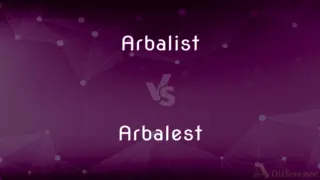
Previous Comparison
Arbalist vs. Arbalest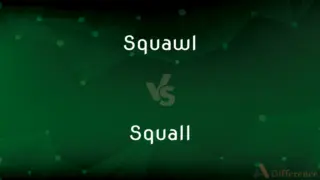
Next Comparison
Squawl vs. SquallAuthor Spotlight
Written by
Sumaia SaeedEdited by
Tayyaba RehmanTayyaba Rehman is a distinguished writer, currently serving as a primary contributor to askdifference.com. As a researcher in semantics and etymology, Tayyaba's passion for the complexity of languages and their distinctions has found a perfect home on the platform. Tayyaba delves into the intricacies of language, distinguishing between commonly confused words and phrases, thereby providing clarity for readers worldwide.


